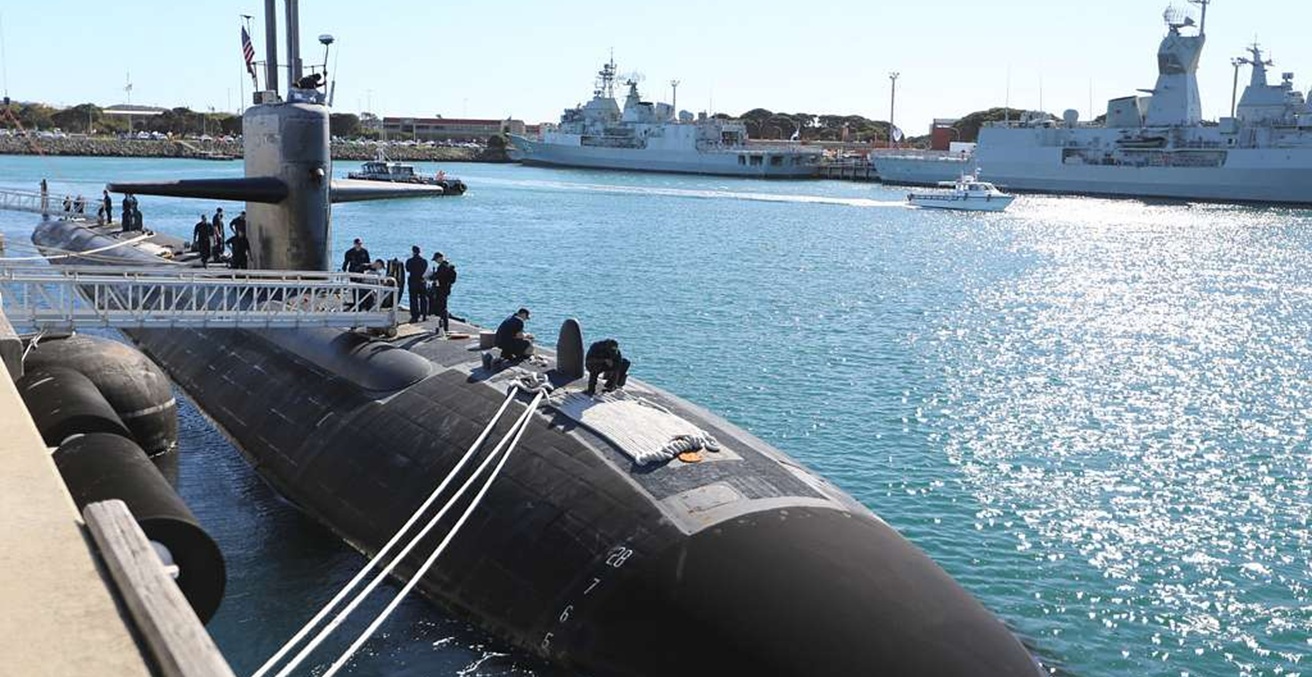Imagine if China was able to weaponise the ongoing South China Sea dispute even further and close it to international shipping. How would this affect Australia economically, strategically, and from a national security point of view?
Russian aggression against Ukraine since 2014 and the outbreak of total war on 24 February this year sent shockwaves around the world and sent the global economy, which was already battered by the COVID-19 pandemic, into a tailspin. Its global ramifications can be felt in every market economy: from the rise in interest rates, inflation, disruption of global supply chains, and even the prospect of a global famine in countries of the Global South which depend on Ukrainian wheat, whose export is being blockaded by Russia. Russia’s blockade has been called a “war crime” by the European Union.
At the same time, China continues with its bellicose rhetoric and assertiveness: increasing its presence and influence in the vicinity of Australia, most prominently in its new security pact with the Solomon Islands. The People’s Liberation Army (PLA) does not hesitate to endanger Australian military personnel, as the most recent aerial incident has shown. Beijing’s assertiveness and aggressive grandstanding can be felt from Hong Kong to Taiwan, from the South China Sea (SCS) to the Pacific Islands. Among these examples, the situation in the SCS is particularly concerning for the security in the region, as well as for Australia’s national interests.
The SCS, as the maritime gateway of the Indo-Pacific, is of global economic and strategic importance. It connects the Indian Ocean with China and the Asia-Pacific with an annual maritime transport value of around AU $5 trillion. It is rich in natural gas and oil which are crucial commodities for China, and hence of strategic importance. China’s drive to claim these waters as sovereign by building artificial islands and militarising these led to a Hague ruling against China, and increased tension with five other SCS nations. China’s use of actual military force, and the constant threat of force against military assets is tasked with conducting so-called Freedom of Operation operations. China uses the so-called “nine dash line” argument to claim up to 90 percent of the SCS and claiming Chinese maritime spheres to the exclusion of other SCS nations. The Philippines brought a successful case before the Permanent Court of Arbitration for the illegal infringement by China on the Philippine’s Exclusive Economic Zone (EEZ) when the Tribunal delivered an unanimous decision rejecting China’s expansive SCS maritime claims as having no basis under international law.
China has begun weaponising islands – both natural and terraformed – in the SCS with effective anti -access/anti-area denial (A2AD) systems, a move which threatens global shipping and the security of the bordering nations. In addition, China is using a well-organised maritime militia – The Chinese Communist Party’s (CCP) “little blue men,” a reference to Russia’s “little green men” used in Crimea as part of its Hybrid Warfare approach – to harass other vessels present in the SCS.
China’s ambitions in the region constitute a real threat to the sovereignty and national security of nations belonging to the Indo-Pacific family. From the use of force, highlighted in the 1988 occupation of the Johnson South Reef by China, where several Vietnamese soldiers were killed, to regular intimidation attempts against the U.S. Navy and its partners’ assets, to lawfare as part of its grey zone three warfare approach. This approach, known as san zhong zhanfa, centres around three vectors of competition: 1) Public Opinion, which intends to project a positive image of China domestically and abroad; 2) Psychological Warfare, which seeks to undermine enemy combat operations by deterring and demoralising enemy military personnel and supporting civilian populations; and 3) Legal Warfare, which uses national and international law to support Chinese interests.
Australia, as an island-continent, has vital interests in a peaceful resolution of the SCS dispute: it is heavily reliant on the free flow of global shipping for its economy and interconnectivity. The SCS is one of the Indo-Pacific’s true choke points and any limitation of the freedom of navigation or the principle of the freedom of the seas has direct negative consequences for both Australia’s economy and its GDP. But there is more to it: as one of the few full democracies in the region, Australia is obliged to commit to the upholding of the rule of law as a matter of principle and survival. Australia has successfully managed to overcome the CCP’s diplomatic deep freeze aimed at its sovereignty. Australia’s resilience against Beijing’s trade coercion since 2020 has instead inspired other states, such as Lithuania, to push back against Beijing’s diplomatic and economic coercion and is being studied by the European Union in terms of lessons to be learned when resisting such threats.
As I mentioned in a recent Vietnamese media op-ed: The CCP seems to want to replicate the US Monroe Doctrine in the Indo-Pacific, and views the US Indo-Pacific strategy as a regional confrontation aimed at China. China wants to create an identity deception when interpreting a “family” story in the Asia-Pacific, where the region is under “attack” from the outsider US and China will not tolerate any attempts to diminish its influence based on Western concepts of multilateralism, rule of law-based global order, and multipolarity,
Russia is threatening the global post-1945 global order with its unwarranted aggression against democratic Ukraine, a European nation gravitating towards both the EU and NATO as guarantors of freedom, economic stability, and national security. Beijing has shown a complete failure in grasping the moment of principled statecraft when pledging full support for Russia’s war in Ukraine. Apart from some weak diplomatic messaging regarding the protection of civilians, Beijing has remained silent in terms of leveraging on its strategic partner and even expressed its unwavering support for Moscow. Military analysts even suggest that Beijing is seeing the Western support (or reluctance as in the case of France and Germany) for Ukraine as encouragement for any military action against Taiwan. Before this backdrop and to avoid a kinetic military conflict in the region, a resolute response is the best means of de-escalation and defence.
Australia’s new government seems to be seeking the middle ground between the often bellicose rhetoric of the last government and appeasement. Or in the words of Lowy’s Director Michael Fullilove at his address at the National Press Club and summarised by the Australian National University’s Professor John Blaxland, Australia “should work with our global ally, using international institutions to solve global problems, and enliven connections with Asia and the Pacific. We should aim at restoring balance to international policies; balance between diplomacy and defence, balance between words and deeds, between alliances old and new. And to be strong on climate and China.”
Australia’s continuing support for ASEAN’s initiatives for the SCS, including the ASEAN China Code of Conduct, the ASEAN-US Maritime Cooperation, active contribution to Quad’s new maritime initiative, and overall diplomatic and active support of President Biden’s new Indo-Pacific Strategy, are all part of a multilateral and multi-stakeholder approach to peace and stability in the region and key for future constructive engagement in the region. Foreign Minister Senator Penny Wong’s diplomatic outreach to partners in the region and inclusion of climate change as a shared concern are positive signals, and point in the right direction for an Australian Pacific strategy based on comity, shared values, and commitment. The countering of China’s malignant influence in the near and far region requires also a revisit of Australia’s strategic dependencies – China’s COVID diplomacy and coercion are an example- and how foreign influence is dealt with in Australia. A continuation and intensification of Australia’s strategic partnership with the US, India, Japan, and the UK are all key for containing the current CCP hazard to the SCS and beyond.
This article was one of the top ten most read articles published in 2022.
Sascha-Dominik Dov Bachmann is Professor in Law and Co-Convener National Security Hub (University of Canberra), University of Canberra, and a Research Fellow with the Security Institute for Governance and Leadership in Africa, Faculty of Military Science, Stellenbosch University.
This article is published under a Creative Commons Licence and may be republished with attribution.




